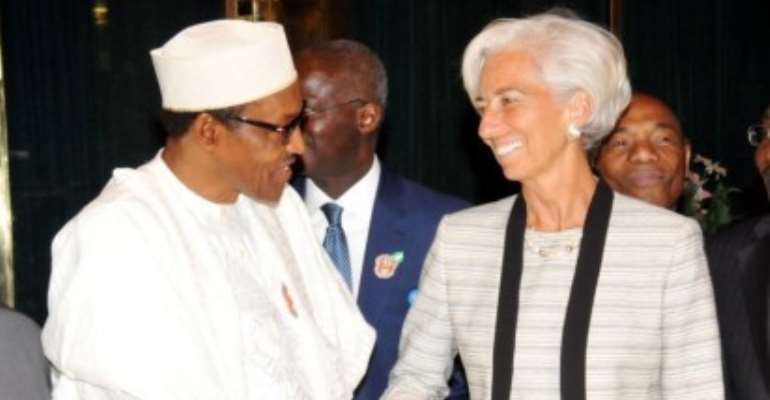FG turns to IMF, World Bank for loans

The Federal Government has said it was turning to the International Monetary Fund, IMF, and the World Bank for some of its external borrowings to boost the economy out of recession.
According to the government, both institutions have some 'concessionary terms' attached to borrowing packages.
A statement signed by Media Adviser to the Minister of Budget and National Planning, James Akpandem, quoted the Minister, Senator Udo Udoma, as stating this at a meeting with the Assistant Secretary for Multilateral Affairs of the Trade and Policy Department at the French Treasury, Mr Guillaume Chabert, in Abuja.
Udoma re-emphasised that Nigeria's borrowings were solely to fund infrastructure projects, adding that 'the stimulative effect of investing in infrastructure was enormous and was the surest way of setting the country on the path of growth and sustainable development.'
The minister told the Assistant Secretary, who was accompanied by the French Ambassador to Nigeria, Mr Denys Gauer, that the Federal Government is working on a National Economic Recovery and Growth Plan, which is tailored to move the country's economy out of recession and set it on a growth path.
'Our plan is that we should be able, within that plan period (2017- 2020), to achieve not less than 7% growth.
'For one to get out of economic recession, we will need to harness resources by plugging revenue leakages and by looking at new revenue sources in order to generate the resources required to spend our way out of recession, particularly focused on infrastructure,' he added.
The minister explained that while government was exploring other means of generating revenue internally, 'we will need to borrow, part of which has to be sourced internationally from sources that can give concessionary terms, like the International Monetary Fund, IMF, and World Bank.
'We know we need to look at upgrading our oil revenue in order to generate the resources to spend our way out of dependence on oil; which means we have to focus our attention on reducing the disruptions in the Niger Delta, so that we can get our production back to a minimum of 2.2 million barrels per day. That is the fastest way to generate resources.'
He pointed out that government alone could not do it, saying that was the reason government emphasised on creation of an enabling environment for effective private sector participation in growing the economy.
He said the government was also going into partnership with the private sector in critical areas of infrastructural provision and concessioning.
He said: 'Our intention is to make the private sector to lead the way in social housing. We will kick-start the process and intend to make some provision for it in the 2017 Budget. Then we are also looking at manufacturing.
''One of the ways is by developing export processing zones where we will have all the required infrastructure including power, rail and security, to encourage manufacturers to relocate to Nigeria.
'We want to make sure that the growth will be an inclusive one. In the past, we used to have growth that was not inclusive. We were growing but poverty was increasing. We want to make sure that the growth is inclusive. One of the ways is to give preference to labour intensive activities to create jobs, which is the fastest way to reduce poverty. In addition to that, we will continue with our social intervention projects.'
The Assistant Secretary, Mr Chabert, while appreciating the economic challenges the country was currently facing, said the French government would be willing to support Nigeria surmount the challenges.
'It is in our interest that Nigeria succeeds,'' Chabert said, promising to make some input into the country's economic plan once the framework was made available.
